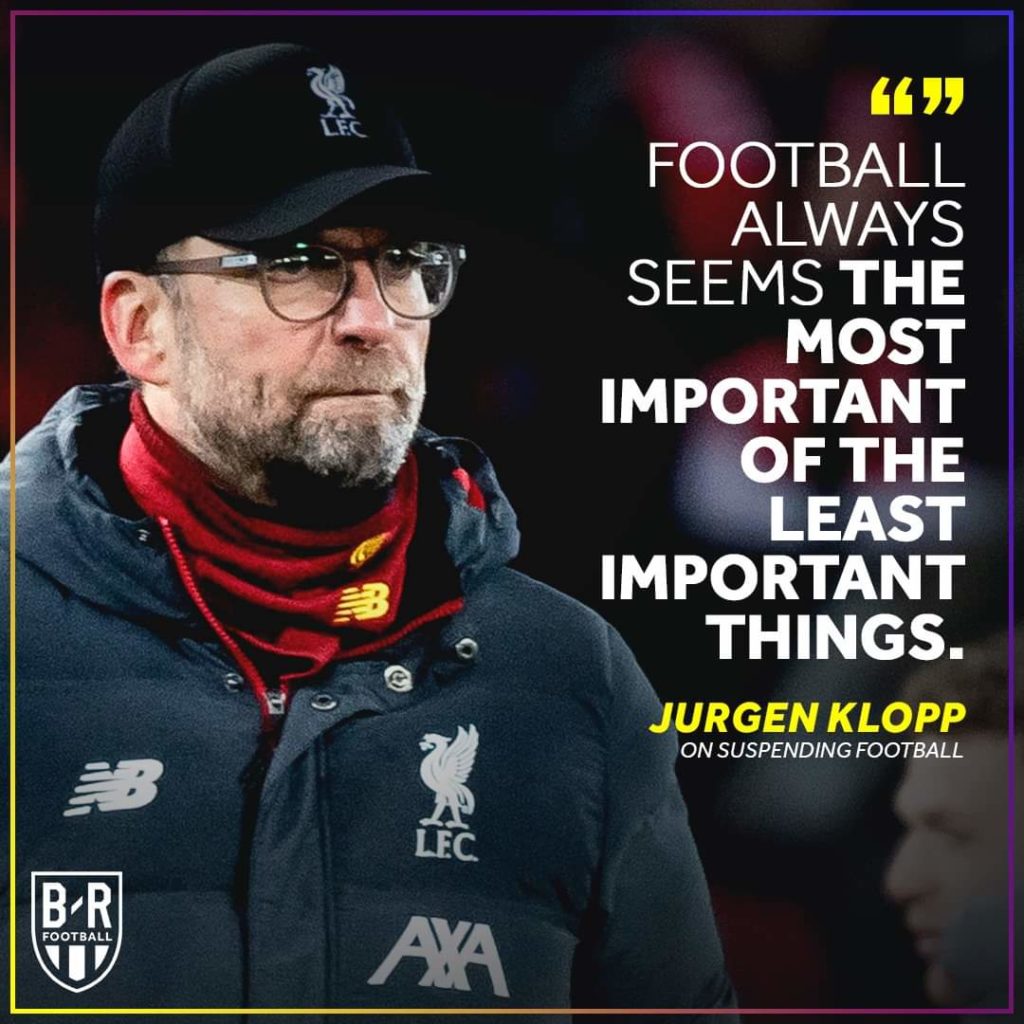
|
Getting your Trinity Audio player ready...
|
Sometime last year, surfing YouTube mindlessly as I often do when I have a few hours left to exhaust my latest Vodafone ‘Special Offer’ data allocation, I came across Tifo Football (formerly uMAXit Football).
I fell in love. Madly and deeply.
I hadn’t set out to find this treasure trove, but now I had, I dived right in. Sipping from Tifo’s pool of “informative, illustrated football analysis,” my football-hungry soul helped itself to all the videos that the account had to offer — a whole lot that I would recommend, really.
There was one that especially piqued my interest, though: What if Football Stopped for a Year?

About seven-and-a-half minutes long, the video begins with a famous quote from Italian coaching great Arrigo Sacchi — echoed by Liverpool boss Jurgen Klopp in the light of recent events that would be discussed later in this article — before pointing out all that is wrong with modern soccer, from the sickening capitalism to fixture congestion. The narration — based on an article on The Athletic — goes on to explain in detail how an annual calendar stripped of any professional football would make the sport a better place for all of its stakeholders: players, managers, club owners, fans, etc.
It all made plenty of sense and, for a while, even got me dreading a world that was hitherto almost inconceivable; as the video conceded in its conclusion, however, all of this painted a “fantasy scenario,” unlikely to ever happen. Really, what could stop football’s wheels, diamond-encrusted and gleaming, from turning at such speed?

Well, nothing, it seems, but a global pandemic — a rather devastating one known as COVID-19 (novel coronavirus disease). Nearly a fortnight has passed since a game was last played in any of Europe’s five major domestic leagues, producing a result that kept Borussia Monchengladbach in the hunt for a UEFA Champions League ticket and FC Koln just outside of the Bundesliga’s top half. The two days that followed saw knockout matches in Europe’s two major competitions contested. Then, league after league, they began to close — only for a while, seemingly.
For those whose lives and comforts hinge on football’s constantly revolving doors, this feels like the apocalypse. Clubs and players have sought to present a front of normalcy, keeping the ball rolling on the Internet with throwback videos and fun updates of what they’re up to away from the pitch. Don’t be fooled, though, for these are no normal times. We want to see players kick balls, not toilet rolls; live games, not recorded ones — but none of that may occur anytime soon.
It’s not exactly what I watched on Tifo all those months ago but, well, this is close enough. Tifo only prescribed the stoppage of fixtures — not of the entire industry — though you probably wouldn’t notice the difference. Football, in this case, didn’t stop because it wanted to — in fact, as you’d recall, the sport stubbornly dragged itself forward against the early wave of the COVID-19 outbreak before being forced to an abrupt halt by common sense — and that’s why it’s so hard to tell when it’s coming back. The two most exciting domestic leagues, in England and Spain, won’t return until it’s safe enough to do so (as is all professional football in those countries), UEFA has moved its European Championship to 2021, while the continental club competitions have been postponed, too.
Suddenly, Livescore — or whichever app with which you keep track of football results — doesn’t seem so useful anymore. Suddenly, sports betting — to those who are into it — doesn’t feel so attractive anymore. Suddenly, the world — without football — isn’t so much fun anymore.
But, of course, we’ll wait patiently (and nervously), counting the days till our favorite pastime returns to light up our evenings and garnish our weekends. Hopefully, we won’t — sorry, Tifo — have to wait and count up to a full year.
That would be tragic, wouldn’t it?
NY Frimpong — Daily Mail GH





